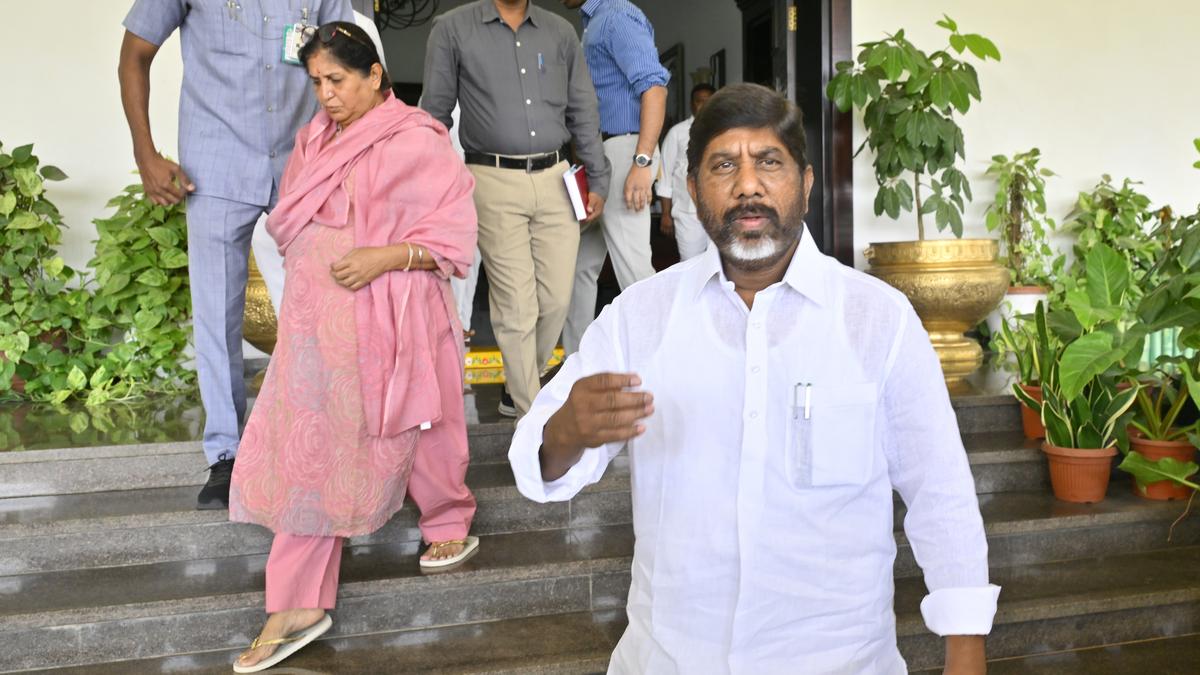
Telangana, a pioneer in the implementation of landmark welfare schemes, says Bhatti
The Hindu
Telangana Deputy CM praises state's welfare schemes, including free fine rice distribution, bonus for farmers, and youth employment program.
Telangana has emerged as a role model for the entire country in the implementation of multifarious pioneering welfare schemes aimed at all-encompassing welfare with a thrust on social justice and inclusive growth, said Telangana Deputy Chief Minister Mallu Bhatti Vikramarka.
Speaking to the media in Madhira town of Khammam district on Sunday (April 13) after laying foundation stone for the ₹128-crore underground drainage project, he said the implementation of the free fine variety rice scheme as first of its kind path-breaking initiative in the country. Fine rice is being distributed to 90 lakh families with ration cards and 2.85 crore beneficiaries across the State.
“In addition, along with new ration cards to be issued, a total of one crore ration card holders and 3.10 crore beneficiaries will get fine rice. The people’s government will spend ₹13,525 crore every year on the distribution of fine rice to the poor,” he noted. To encourage farmers cultivating the fine variety of paddy, the State government is spending ₹2,675 crore towards payment of bonus for fine variety of paddy, benefiting farmers.
The State government had launched the Rajiv Yuva Vikasam Scheme to extend financial assistance to the unemployed youths to enable them set up self-employment units and become financially self-reliant. An amount of ₹9000 crore had been earmarked for the self-employment ventures, he added.

Muslims in Hyderabad wear black armbands to Friday prayers in protest against Pahalgam terror attack
Muslims in Hyderabad protest against terror attack in Pahalgam, wear black armbands, chant 'Pakistan Murdabad', 'Hindustan Zindabad' slogans.

Besides a stellar career in the space programme, he was the author of the Kasturirangan Committee report on Western Ghats, which in 2013, identified an area of 59,940 sq. km of natural landscape of Western Ghats, spread across Karnataka, Gujarat, Goa, Tamil Nadu, Kerala and Maharashtra as ecologically sensitive.

 Run 3 Space | Play Space Running Game
Run 3 Space | Play Space Running Game Traffic Jam 3D | Online Racing Game
Traffic Jam 3D | Online Racing Game Duck Hunt | Play Old Classic Game
Duck Hunt | Play Old Classic Game









